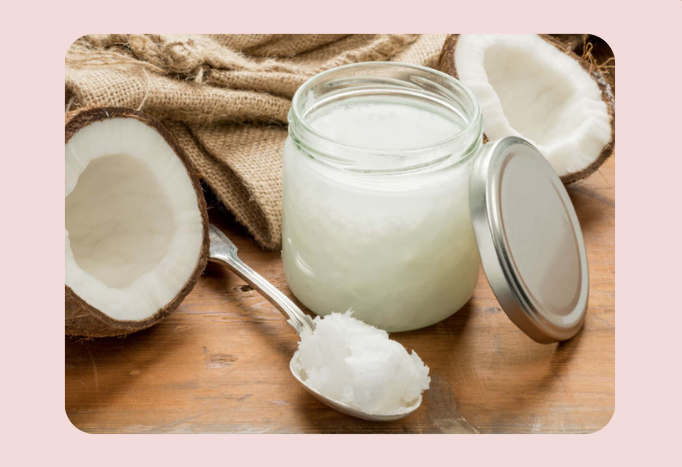At REV Optimal Living, we’re passionate about empowering our community with information that supports vibrant health and optimal living. One topic that consistently sparks interest—and sometimes confusion—is alcohol.
Whether you enjoy an occasional glass of wine, love craft beer, or prefer cocktails, understanding how alcohol interacts with your body, mind, and nervous system can help you make empowered decisions.
This blog is not about demonizing alcohol but instead offering clarity, perspective, and practical guidance to help you enjoy life while supporting your health.
The Science of Alcohol: What Happens in Your Body?
Alcohol (ethanol) is a psychoactive substance and a depressant, which means it slows down central nervous system activity. The liver metabolizes alcohol at a rate of about one standard drink per hour, but this varies based on genetics, overall health, gender, and age.
When you drink, alcohol quickly enters the bloodstream, impacting neurotransmitter balance, notably dopamine and GABA. Initially, dopamine release creates feelings of relaxation, reward, and pleasure, while increased GABA activity results in calming effects.
However, repeated alcohol consumption can alter neurotransmitter function, creating tolerance, dependence, or even exacerbating anxiety and depression long-term.
Alcohol’s Impact on Your Nervous System
Your nervous system is continuously responding to internal and external stimuli, managing stress responses, and regulating critical body functions.
Alcohol consumption significantly influences this delicate balance, primarily impacting your autonomic nervous system (ANS)—the system controlling involuntary bodily functions, including your heartbeat, breathing, digestion, and stress responses.
Short-Term Effects:
- Altered mood and behavior: Alcohol temporarily reduces anxiety but can also impair judgment and emotional control.
- Disrupted sleep: Though alcohol may initially help you fall asleep, it reduces REM sleep quality, causing fragmented rest and disrupted circadian rhythms.
- Inflammation: Alcohol triggers inflammation in your body, which can increase pain perception, aggravate headaches, and contribute to chronic inflammatory states.
Long-Term Effects:
- Chronic stress response: Regular alcohol consumption trains your nervous system to stay stuck in sympathetic (fight-or-flight) mode, increasing baseline anxiety and stress.
- Neurotransmitter imbalance: Chronic use disrupts serotonin and dopamine production, potentially contributing to mental health issues such as depression, anxiety, and mood swings.
- Cognitive decline: Over time, excessive alcohol use can impair memory, concentration, and decision-making abilities.
How Alcohol Impacts Your Physical Health
Beyond the nervous system, regular alcohol intake significantly impacts overall health:
1. Gut Health
Alcohol irritates the gut lining, compromising intestinal integrity. This can contribute to leaky gut, inflammation, digestive issues, and reduced nutrient absorption. Gut health, in turn, profoundly influences mental health, immunity, and overall vitality.
2. Liver Health
The liver processes toxins, including alcohol. Heavy drinking can lead to inflammation, fatty liver disease, and long-term liver dysfunction. However, even moderate drinking puts stress on this essential organ, impacting its capacity to detoxify effectively.
3. Immune Function
Alcohol suppresses immune response, making you more susceptible to infections. It can also slow down recovery and healing processes.
4. Hormonal Imbalance
Alcohol disrupts hormonal balance, influencing cortisol, insulin, estrogen, and testosterone. Long-term imbalances contribute to issues like chronic fatigue, weight gain, hormonal disorders, and decreased libido.
The Differences Between Wine, Beer, and Spirits
All alcohol isn't created equal. Understanding the differences can help you make better choices:
Wine
- Pros: Red wine contains antioxidants like resveratrol and polyphenols, linked to heart and cellular health. Some studies suggest moderate wine consumption may lower inflammation.
- Cons: Wine often contains sulfites, histamines, and sugar, potentially causing headaches, allergic reactions, or digestive issues.
Beer
- Pros: Craft beers contain hops, barley, and yeast, offering B vitamins, potassium, and antioxidants in small amounts
- Cons: Beer is often high in carbohydrates and calories. Gluten sensitivity can exacerbate inflammation, and frequent beer consumption might impact insulin resistance and blood sugar regulation.
Liquor
- Pros: Clear spirits (vodka, gin) are lower in sugar and histamines, typically causing fewer inflammatory responses compared to darker liquors.
- Cons: Higher alcohol content, leading to quicker intoxication. Spirits mixed with sugary mixers amplify inflammation, negatively impact gut health, and increase calorie intake.
The Genetic Factor: Why We All Respond Differently
Your genetic profile significantly affects how your body processes alcohol. Some individuals genetically lack or have reduced enzymes (ALDH and ADH) required for alcohol metabolism, leading to heightened sensitivity, hangovers, and increased long-term health risks. Others metabolize alcohol efficiently, experiencing fewer immediate side effects but still potentially accumulating internal damage over time.
Listening to your body and understanding your personal response to alcohol empowers you to make choices that align with your health goals.
Practical Strategies for Enjoying Alcohol Mindfully
1. Hydration First
Dehydration worsens alcohol’s effects. Always drink a glass of water between alcoholic beverages. This reduces hangover risk, maintains clearer thinking, and reduces toxin buildup.
2. Support Your Liver
Use supplements that support liver detoxification, like Milk Thistle or N-Acetyl Cysteine (NAC), especially during holidays or special events.
3. Choose Wisely
Opt for cleaner choices:
- Dry, organic wines (fewer additives)
- Gluten-free beer if sensitive
- Clear liquor mixed with soda water and fresh citrus - instead of sugary mixers
4. Practice Moderation + Mindfulness
Set boundaries for yourself. Notice how alcohol impacts your sleep, mood, and physical state the next day. Honor your limits and prioritize how you want to feel long-term.
5. Build Better Habits
Explore non-alcoholic beverages like adaptogen-infused sparkling waters or mocktails. This can support healthier choices without feeling deprived.
Holistic Support for Alcohol Recovery and Management
At REV, we've helped countless individuals improve their relationship with alcohol by addressing the root causes of stress and discomfort that lead to excessive drinking in the first place.
Through neural integration—a gentle chiropractic approach—we help you unwind stored tension, reset stress response patterns, and enhance your overall resilience.
Many REV members report naturally reducing alcohol consumption as their nervous systems become better regulated, no longer relying on external substances for relaxation or stress relief.
Additional Recommendations:
- Incorporate breathwork, meditation, or mindfulness to address underlying stressors.
- Adopt healthier coping mechanisms (movement, nature exposure, journaling).
- Support your nervous system proactively by establishing regular holistic care practices, which lead to decreased cravings and dependence on substances.
Final Thoughts: Empowerment, Not Restriction
Our goal at REV is never to shame or restrict, but rather to educate, empower, and inspire conscious living.
Alcohol, like many things in life, is neither inherently "good" nor "bad." Your relationship with it, your intentions behind consumption, and your body's unique response determine its impact.
Becoming educated about alcohol’s effects empowers you to choose what's best for your mind, body, and spirit. Whether that means moderation, abstinence, or somewhere in between, the choice is yours.
After all, true healing isn’t about chasing temporary relief—it’s about creating lasting transformation from within.
Learn more on our YouTube Channel / Schedule Online: click here / Phone: (423) 713 -7390
—
ps. Don't forget to subscribe to the newsletter. Weekly, we'll send you game-changing tips, thoughtful recommendations, and include topics that will help you embody your best self. No spam - ever. Click here to subscribe!
Disclaimer: This blog is meant for informational & entertainment purposes only, and should not be taken as medical advice. Please consult your healthcare practitioner before making any changes or if you have any questions regarding information provided.











